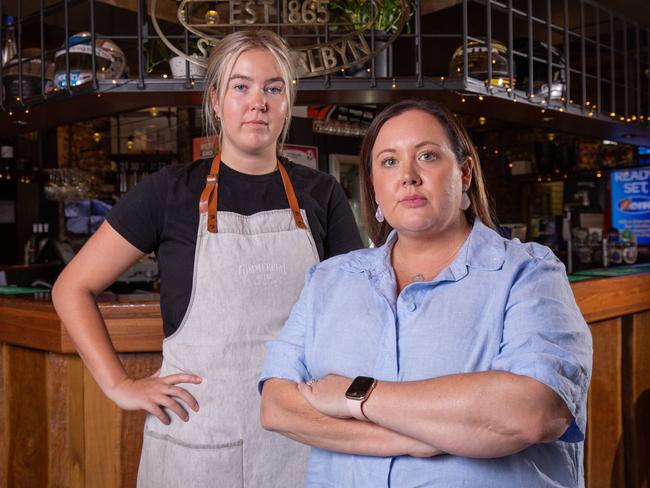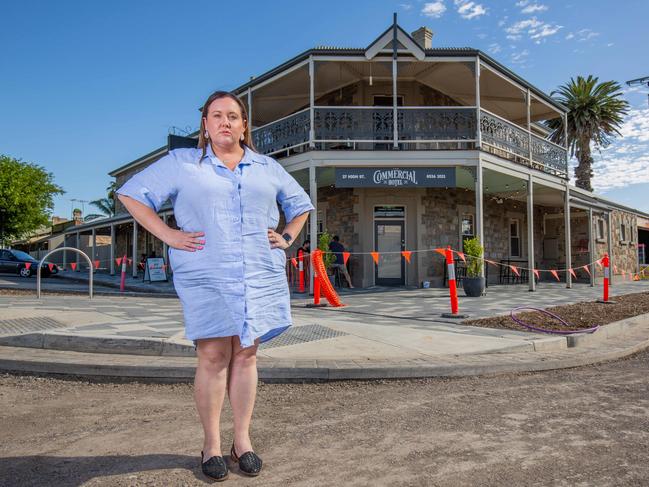Pub schnitzels and steaks could cost more amid huge hotel insurance spike
South Australians face paying more for their favourite pub schnitzel or steak as publicans battle huge insurance hikes, industry leaders fear.
SA News
Don't miss out on the headlines from SA News. Followed categories will be added to My News.
South Australians face paying more for their favourite pub schnitzel or steak as publicans battle huge insurance hikes, industry leaders fear.
In a new cost-of-living blow, hotels have been hit with insurance premiums that are tens of thousands of dollars more expensive along with excess bills that dwarf claims.
Some premiums spiked $100,000 in a year. Some pubs, especially in country areas, struggle to secure cover, putting loans at risk, the Australian Hotels Association warns.
An AHA survey for The Advertiser in December, found almost two thirds of 73 respondents had their insurance rise by up to 40 per cent.
A handful revealed a hike of more than 100 per cent.
Publicans also face rising costs with supply of food, alcohol and entertainment, gas, electricity as well as wages.

Insurers blame a variety of factors including increasing frequency of natural disasters or catastrophic events, poor investment returns and falling income. Location of fire stations also affect premiums.
AHA deputy chief executive Anna Moeller said publicans were desperate to not pass on costs to customers.
“But when the pressure gets high enough, unfortunately the cost of your schnitzel and favourite steak goes up also,” she said. “There’s no silver bullet.”
She called for alcohol excises to ease after the biggest price hike in 10 years.
She welcomed government help for the hospitality sector and to discuss solutions.
Strathalbyn publican Stacey Phelan, 40, said her yearly premiums were $24,000 in 2016 to almost $70,000 this year. Some owners didn’t make a claim given the cost.
“It’s deflating as we work so hard and I can’t just say to my customers, ‘your beer is now more expensive’ but you need insurance,” she said.
An Insurance Council of Australia spokeswoman said there was a global “hard market”, meaning underlying capital was difficult to obtain and reinsurance more expensive.
“This is impacting the availability and affordability of insurance in some markets, including regional pubs and clubs,” she said.

A risk profile found country pubs were often harder to insure due to age, construction and being in natural-disaster-prone locations.
Ruling out government insurance, Treasurer Stephen Mullighan said it was a “nationwide issue … that needs a national response” but added the government was working hard to breathe life back into pubs and hotels.
“The insurers need to better outline what the risks are in the industry that are impacting the availability and cost of insurance, so industry can see whether these can be reasonably addressed,” he said.
“We are happy to meet with the industry to discuss insurance – we have been presented with this research – but the government won’t be stepping in as insurers.
“We are committed to putting our city and state on the national and international stage, and keeping our hospitality industry busy.”
Financial Services Minister Stephen Jones acknowledged rising insurance premiums pressures on hospitality.
“We encourage insurers to work with their customers in the sector to identify risk mitigation strategies that may help to put downward pressure on premiums,” he said.





